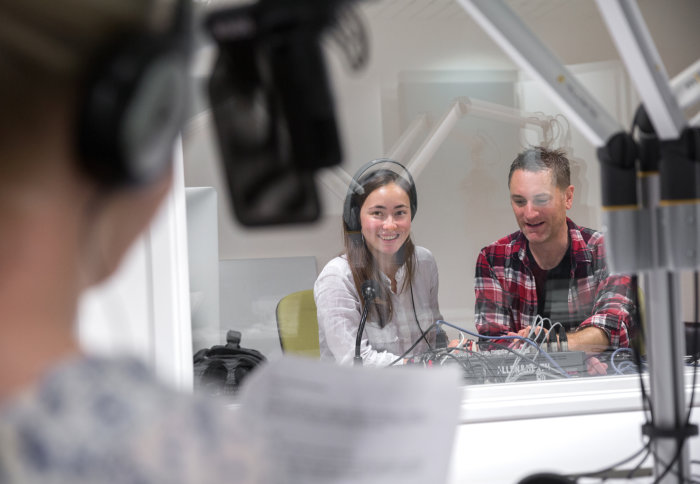Q and A: Imperial celebrates quarter century of science communication

Imperial will welcome over 200 science communicators on Thursday at a conference celebrating 25 years of its renowned Science Communication Masters.
The course was the first of its kind in the UK when it launched in 1991, teaching science graduates how to engage and entertain the public with research.
I’m most proud of the work of the alumni in spreading into every sphere of public science Dr Stephen Webster
Imperial College London currently offers two courses; one in science communication and one in science media production, which concentrates on science in TV, radio and film.
In the past 25 years around 800 students have graduated – going on to take leading roles in museums, journalism, TV and radio production, and communication and policy roles within major scientific organisations.
At Thursday’s conference, alumni and other guests will discuss and debate topics including communicating with integrity, communicating climate change and artificial intelligence, and what the future of science communication will look like.
Laura Gallagher talked to Stephen Webster, Director of Imperial’s Science Communication Unit, about science communication and how it has evolved.
What are you most proud of in terms of what the Science Communication Unit has achieved in the past 25 years?
I’m most proud of the work of the alumni in spreading into every sphere of public science – for example in museums, policy, media companies, learned societies – into everywhere that science is. They have also managed to maintain a mix of humanities knowledge and serious industry-level skills.
Are there things that you think have changed for the better in terms of how we communicate science?
Yes, people are much more inclined to not feel they have to have the answer. I think we understand much better that science can’t take things too simply when it comes to interacting with society. We have a richer understanding of society. We also have a lot more science communicators than we had 25 years ago.
Is there anything that you think has become more challenging or worrying?

Things have changed a lot and scientists are having to be much more aware of the impact of their work. I think that is a challenge because all science has got to be ‘useful’ fairly quickly and I think that makes it harder to have debate about ideas, pros and cons, and ethics.
Another change is that there is much less trust in authority. Science has established certain truths and science communicators want to discuss and debate uncertainties in science, but when it comes to something like climate change, we also want to be clear with sceptics about what is going on. We want to represent science as not just a bunch of facts people need to learn about, but on the other hand we don’t want to prevaricate when it comes to making the world a better place.
What advice do you give to students thinking about pursuing a career in science communication?
I say one: try to understand why you want to communicate science, two: work out your relationship with science – what you like and what don’t you like, and three: consume a lot of media.
Why do you think the world needs professional science communicators?
I don’t think scientists should be pushed into becoming communicators. I think professional communicators have more time to study history and humanities and think about the background and also be seen as science critics – like arts critics. Professional science communicators can get out of the goldfish bowl.
What are you most looking forward to about Thursday’s event?
Seeing all of the alumni and all of them saying ‘you look different’! And being so proud that every single panel is composed of people who graduated from the course. And secondly cutting the cake.

Article text (excluding photos or graphics) © Imperial College London.
Photos and graphics subject to third party copyright used with permission or © Imperial College London.
Reporter
Laura Gallagher
Communications Division